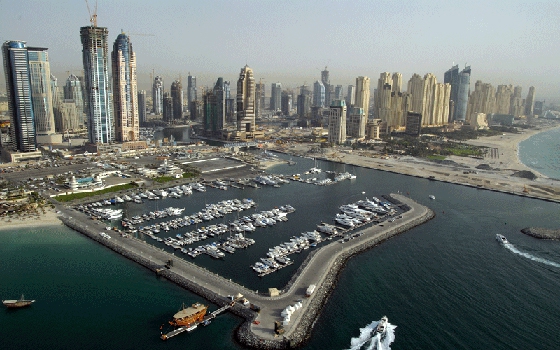An industrial strategy that aims to add Dh165 billion ($45 billion) to the economy and create thousands of jobs by 2030 has been approved by Sheikh Mohammed bin Rashid, Vice President and Ruler of Dubai.
The strategy sets out priorities for developing aerospace, maritime, aluminum and fabricated metals, pharmaceuticals and medical equipment, food and beverages, and machinery and equipment industries.
The industrial sector is expected to grow by Dh18bn by 2030, creating 27,000 jobs, with exports forecast to rise by Dh16bn. Investment in research and development will increase by Dh700 million by 2030.
“The Dubai Industrial Strategy aims to transform the UAE into a global platform for innovative industries and a destination of choice for international companies seeking an integrated and favorable environment for growth and sustainability," Sheikh Mohammed said.
“With the launch of the strategy we are taking one more step towards the future. We have laid down a strong foundation that blends our strategic location and infrastructure with our ambition, confidence and experience.
“We are one step closer to achieving the goal of making Dubai a home for innovators, a favorite place to live and work, a global economic hub and a preferred destination for visitors."
The sectors were chosen for future growth prospects, export potential and mid-term to long-term economic benefits.
“Sustainable development involves activating all pillars of the economy," said Sheikh Mohammed. “A conducive environment is required to achieve our targets that focus on knowledge, science and research, which form the foundation for the development of industries.
“Nations are recognized for what they produce and the value they add to the global economy."
Sultan bin Sulayem, chairman and chief executive of DP World, said the Dubai Industrial Strategy was in line with the UAE’s vision for sustainable progress in the post-oil era.
Dubai is already regarded as a major international trading center and is poised to emerge as a global industrial center, Mr bin Sulayem said.
At the core of the strategy is providing Emiratis with the knowledge and skills through industrial projects, he said, empowering them to take part in the country’s development.
Ibrahim Al Janahi, chief commercial officer of the Jebel Ali Free Zone Authority, said: “The Dubai Industrial Strategy has outlined policies to ensure a steady pace of growth in all sectors and has assigned specific tasks to every economic institution – whether free zones or industrial zones.
“Jebel Ali Free Zone has more than 765 companies from 73 countries, employing nearly 73,000 people over an area of 14 million square meters.
“We intend to increase these numbers in the coming years and contribute to the quantum leap that the national economy will achieve through implementing this strategy."
The National
27 June






















































